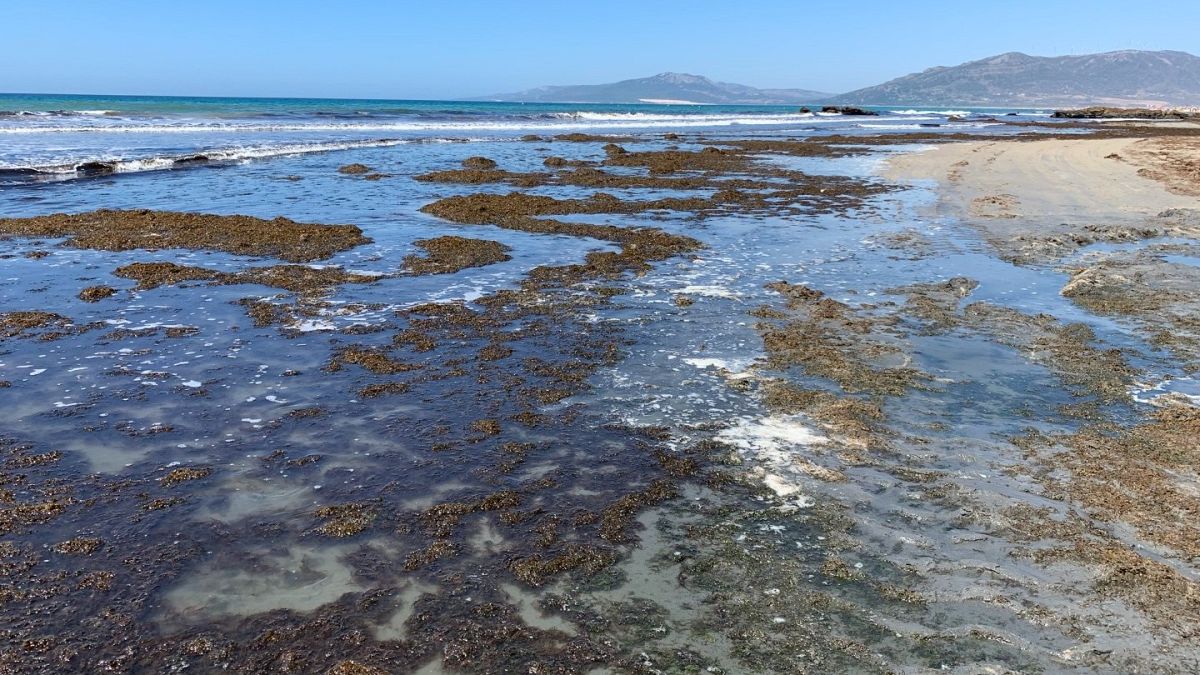

In recent weeks, environmental challenges have taken center stage across the globe, with scenarios unfolding from the temperate beaches of southern Spain to the bustling shores of Sydney, and extending to the heat-baked cities of southeastern Europe. As we delve into these developments, it becomes evident that nature’s intricate balance is both vulnerable and resilient, reflecting the urgent need for harmonious coexistence.
On the scenic coast of southern Spain, an unusual visitor has made its presence felt — the invasive seaweed species known as ‘Rugulopteryx okamurae’. Originating from Southeast Asia, this seaweed has accumulated in large quantities along the beaches of the Strait of Gibraltar, posing a considerable challenge to local biodiversity. This environmental phenomenon has raised concerns among ecologists, who regard it as a significant threat. The seaweed’s proliferation disrupts local ecosystems, affecting marine life and beach environments. Efforts are underway to manage this issue, with local officials and communities collaboratively looking for sustainable solutions to restore ecological harmony.
Meanwhile, the world’s oceans are facing growing concerns due to prolonged marine heatwaves. Scientists have raised alarms that the ocean’s higher temperatures might now represent a new normal. This change could influence marine ecosystems profoundly, stressing the importance of sustained cooperation and innovative strategies to address these shifts. Researchers continue to study the long-term effects of these heatwaves, shedding light on the interconnectedness of global climates and oceanic health, and emphasizing the role of preventive measures in fostering resilience.
In Australia, a forward-thinking approach has been embraced as New South Wales commences trials to remove shark nets from several beaches in Sydney and the Central Coast. Scientists voice their support for this initiative, pointing out the ineffectiveness of nets in preventing shark bites and their unintended impact on a wide range of marine species. Positioned as a step toward more ecologically sensitive management, this measure seeks to balance human safety with the preservation of marine life. It also reflects a growing recognition of the need for solutions that do not indiscriminately harm the animals that inhabit our oceans.
Turning our attention to Europe, the southeastern regions have been experiencing a significant heatwave, characterized by soaring temperatures vanquishing records, notably in Turkey where the mercury topped a staggering 50.5°C. However, relief is on the horizon. A refreshing airmass from the north promises an end to the heat, bringing much-needed respite to both residents and the natural environment. This change highlights the dynamic nature of weather systems and the adaptive capacities of human communities when facing environmental challenges.
These recent events serve as a reminder of the interconnected fabric of natural ecosystems and human society. By fostering awareness and participating in collective action, we can better equip ourselves to safeguard and nurture our environment, ensuring that the earth’s many wonders can continue to thrive for generations to come.
Source: {link}
